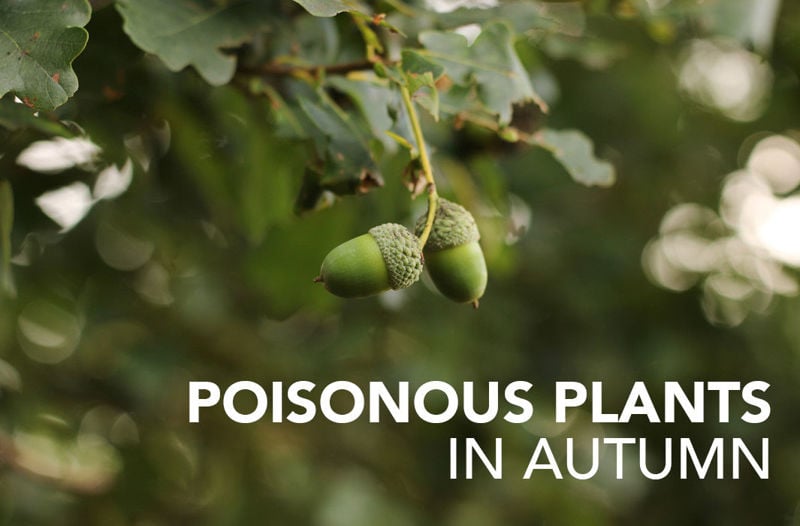Horses are natural browsers and in wild situations have been observed to eat lots of different types of forage on a daily basis. Allowing your horse to graze on a wide variety of forages acts to mimic this natural behaviour and helps to enrich their life, however, there are many common UK plants that are toxic to the horse and should be avoided at all times. Knowing what these plants are and how to recognise them will help you to ensure good pasture management, and recognising the sings of poisoning will help you to quickly speak to the vet in the case of accidental ingestion.
The most common poisonous plants in the UK are -
- Ragwort
- Foxglove
- Nightshade
The most common poisonous trees in the UK are -
- Sycamore
- Oak
Ragwort
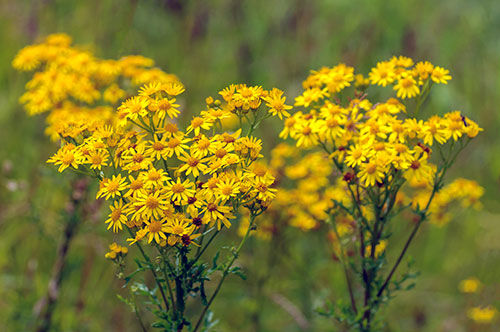
Ragwort is a common weed that is seen in abundance throughout the UK in areas of unmanaged grassland and verges. Ragwort spreads easily and is therefore a big concern to horse owners as it can spread to grazing land. While ragwort has a bitter taste and is rarely eaten by horses while it's growing, it will be eaten if the grazing is poor and there is a lack of other forage options. In addition, once dried it is very palatable, so when you buy in your winter forage, ensure hay and haylage is thoroughly checked.
Signs of Ragwort poisoning include:
- Depression
- Jaundice
- Photosensitisation
- Neurological Issues
The whole plant and its roots should be removed from grazing pasture, ideally before it flowers, and disposed of safely.
Important - Ragwort is harmful to humans if touched, so ensure protective equipment is used when removing ragwort from your horse’s pasture.
Foxglove
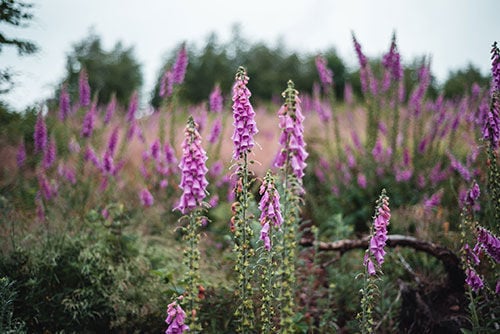
Foxglove grows across the UK. Like ragwort horses will not normally eat growing foxglove, but it's more palatable once dried, i.e. in hay, and just 100g could prove fatal.
Signs of Foxglove poisoning include:
- cardiovascular issues
- breathing problems
- digestive upset
- neurological issues.
Foxgloves can self-seed easily. You should remove any Foxglove that grows on or near pasture and fence off areas to restrict horses' access if the plants cannot be removed.
Deadly nightshade
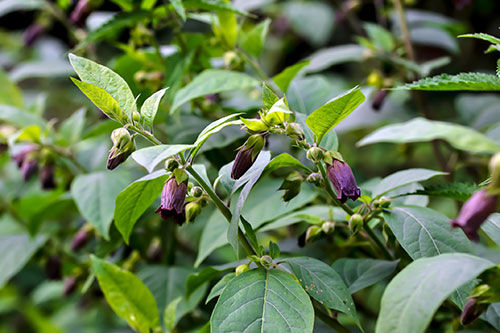
Although ingestion of deadly nightshade is rarely fatal, its ingestion does cause many health issues. Deadly Nightshade contains atropine alkaloids. These can cause:
- Muscle tremors
- Disorientation
- Changes to the heartbeat.
In autumn look out for the shiny black berries of Deadly Nightshade. You should make all efforts to remove the plant by pulling or digging it up, making sure you wear gloves when doing so.
Sycamore seeds and seedlings
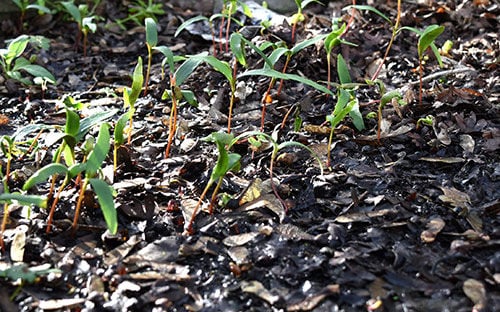
Sycamore seeds and seedlings contain hypoglycin-A when, when ingested by the horse, causes Atypical Myopathy, which is often fatal. It is important to be vigilant in the autumn as this is when the ‘helicopter’ seeds drop from the tree, and in windy conditions they can travel vast distances.
Some common symptoms of poisoning include:
- sweating
- depression or changes in behaviour
- muscle stiffness or tremors
- reluctance to walk, weakness or difficulty standing
- breathing difficulties
- dark urine (reddish in colour)
- collapse
Oak trees and acorns
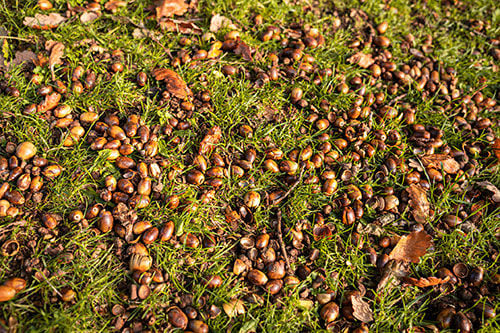
Oak trees drop their acorns in the autumn. Unlike most of the other plants that are poisonous to horses, acorns are highly palatable to horses and often become addictive. Consider fencing off areas to oak trees that are near or in your horse’s pasture and check for and remove acorns. It is also advised to provide plenty of alternative forage to reduce the change of your horse eating fallen acorns.
Some common symptoms of poisoning include:
- depression or changes in behaviour
- stomach problems or pain
- loss of appetite
- changes in bowel movements or diarrhoea
PLEASE NOTE – This is not an exhaustive list of poisonous plants. There are many more, including Bracken, Hemlock, Horsetail, Ivy, Yew, Laurel, Laburnum, Privet, Rhododendron, to name a few. If you suspect your horse has eaten a poisonous plant do not wait for symptoms but call your vet immediately.
Read more about the hazards of poisonous plants in our Journal for Equine Nutrition.


